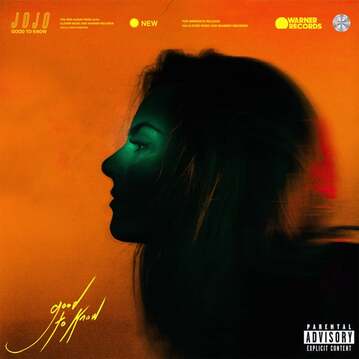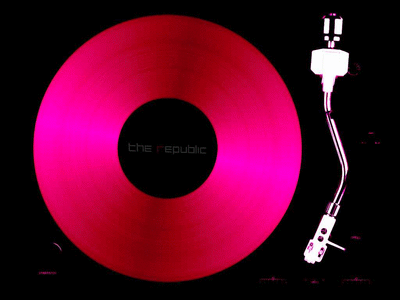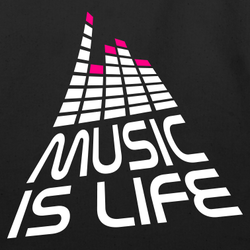
Favorites: So Bad, Gold
Overall: A seductive musical narrative that's actually R&B, and not diet hip-hop.
The amount of unsung and/or underrated music acts is so innumerable, there’s a whole television series dedicated to profiling them. If an artist doesn’t have a proper time in the sun, it’s usually for one of three causes. One, they sabotaged themselves. Two, their professional team stifled them, or three, audiences were indifferent toward them for some reason. For Joanna “JoJo” Levesque, it was option two.
If you’re not already familiar, JoJo rose to fame at age 13, being known as “the little white girl with a big, soulful voice.” She was steered into the pop market, and hits like “Leave (Get Out)” and “Too Little, Too Late” helped her become the youngest solo act to top the Billboard Hot 100. The attention lead to film opportunities, which her recording label reportedly wasn’t thrilled about. This was just the beginning of her troubles with Blackground Records. As the company folded, JoJo found herself locked into a contract and unable to release material. A decade would pass before she could let anything out commercially, losing critical years. Aside from die-hard fans, listeners who knew her had the impression she left the industry. Fresh ones couldn’t discover her because her work wasn’t available on streaming platforms (she re-recorded songs to get around this). She eventually signed with Atlantic Records, but her time with them was brief, as she desired more "ownership." After developing her own imprint, Clover Music, she ultimately took her business to Warner.
Promotional single “Joanna” arrived with a visual in October 2019. In it, JoJo sings from the perspective of critics and disgruntled long-term fans. People bum rush past her, trying to get to a glitzy star in a limo. She concludes with “You were supposed to be somebody, you were supposed to make more money, make us proud...nobody likes you in Massachusetts, you should just hurry and drop your new shit,” wearing a sly grin. She was putting followers on notice that she wasn’t giving up and she’d be making her third major attempt at standing in the sun.
JoJo’s stepped out with Good to Know (stylized as good to know), which chronicles her seesaw between maladaptive coping behaviors and those that are constructive. She and the production team did an excellent job personifying the misleading and insidious lure of vices. Lido, Doc McKinney, Noise Club, and others gave sound to self-destruction masked with pleasure and hedonism from moment one. Opener “So Bad” has seductive, yet equally ominous energy. On the infidelity tune, a muffled fluttering piano rises to a dramatic radiating bass, layered with yowling synths and womanly moans. JoJo herself convincingly plays two parts. In the chorus, she's a confident mistress who’s thrilled by hiding in plain sight. In the verses, she emits desperation and insatiability. She pleads for more attention, and is adamant she’s the best option for her pursuit.
 (Warner/Clover Music)
(Warner/Clover Music) Structurally, many tracks have introductory build-ups and quieter exits that put vocals in the forefront. JoJo uses different sectors of her tone to both convey emotion and demonstrate her versatility. On one cut, she’ll flow from husky to velvety, and feathery to robust. Her highs are just as full and powered as her lows. Rather than be ostentatious or overstated to exhibit her skill, she does so through a subtle approach. The way she plants her effortless runs, flourishes, and operatic occasions, it’s as if they’re Easter eggs (ex. "Man"). Recognizing them over recurrent listens makes for a fun aural experience.
JoJo’s writing is straightforward, but tender-hearted. Portions are like a journal entry or printed appeal to someone. Others are kind of crassly frank, such as “Comeback,” featuring Tory Lanez (it’s arguable the language is purposeful on that specific track though). Some of the LP’s co-lyricists are Lauren LaRue, Caroline Ailin, Lowell, and Nat Dunn.
 (Warner/Clover Music)
(Warner/Clover Music) The physical edition of the LP is less mysterious, with a pocketful of subtractions and elucidating additions. JoJo gets a second verse on “Comeback,” replacing Tory Lanez’s rap. “Bad Habits,” the precursor to “So Bad,” clearly states the project’s thesis. Closing things out is “Proud,” JoJo’s love letter to her mother for encouraging words. Its discussion of personal worth and care suggest the songstress was able to stabilize herself after distress. This is certainly a contrast from the 'flailing in the wind' ending of “Don’t Talk Me Down.” Cloudy transitions between numbers are also involved, contributing to the aura. Given the influence of these changes, I’m extremely curious about the motive to exclude them from the digital set. It simply could be a consumer purchase incentive. Creatively, the intent might’ve been to open the door for varied interpretations.
Whether or not R&B is 'dead' has been long questioned. The debate partially stems from the genre’s adoption of traits from hip-hop/rap. Another factor is the seemingly lowered standards of the music business. Artist development and support isn’t what it used to be. The skills of talent are limited and pale in comparison to their predecessors. JoJo’s Good to Know shows there are signs of life in the field. It doesn’t stray far from the R&B palette, and it largely avoids trap-hop or anything adjacent. It’s artificial effects aren’t overbearing, and authentic instrumentation is highlighted. The lyrics aren’t odiously crude, surface, and/or aloof. JoJo fulfills her job description as a singer. There’s nothing basic or lazy about what she does. The album has no ‘fluff pieces;’ each track is likable and can stand on its own. The only atrocity is that the LP is 30 minutes and isn't longer.


 RSS Feed
RSS Feed